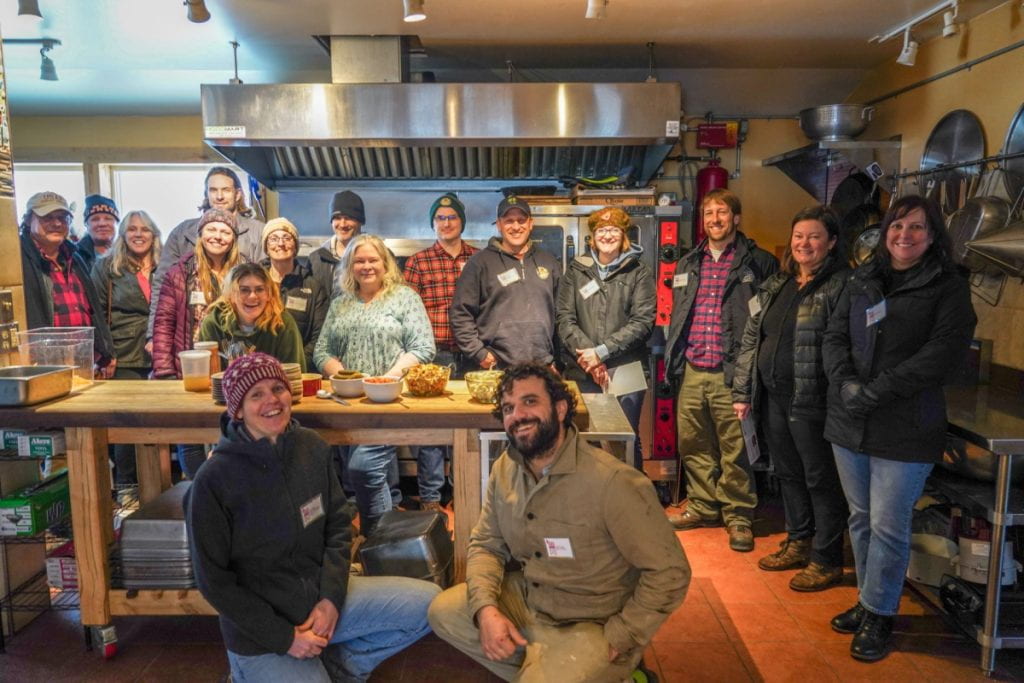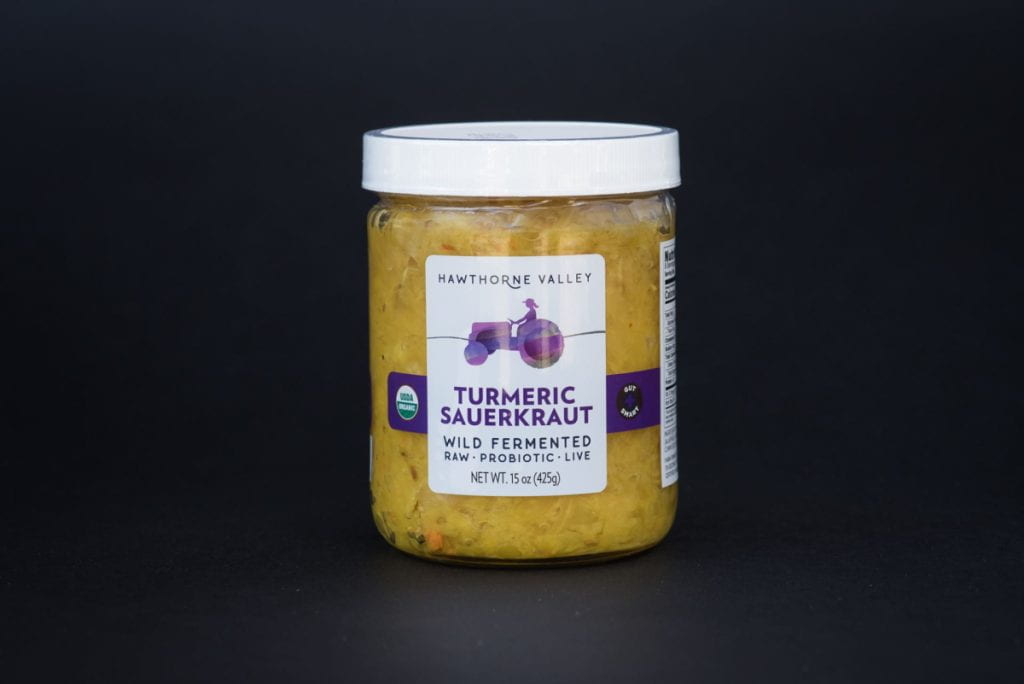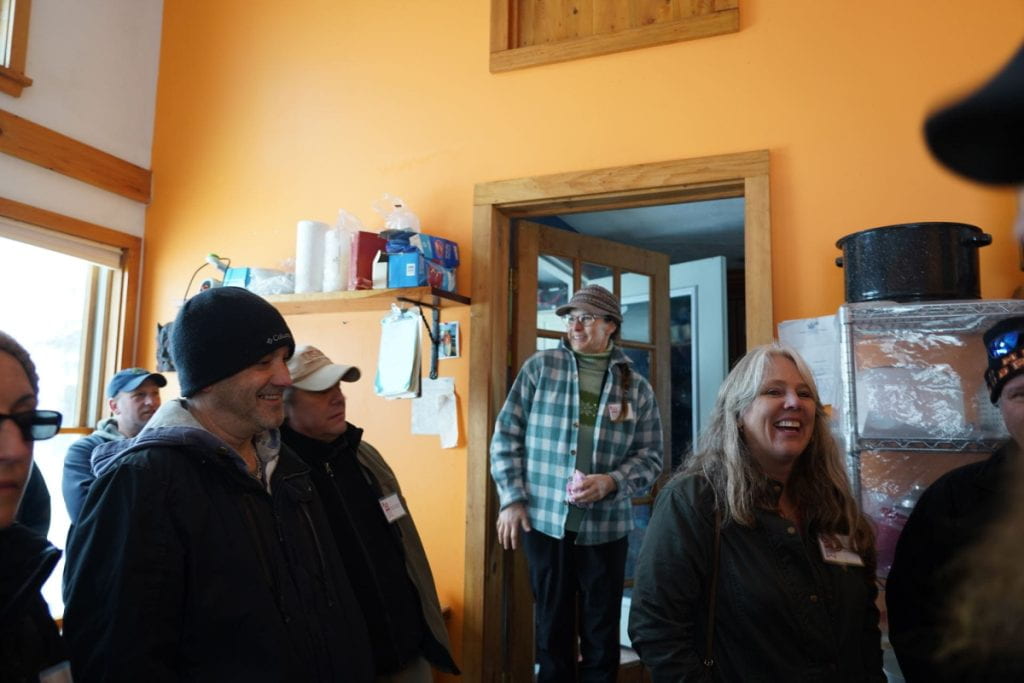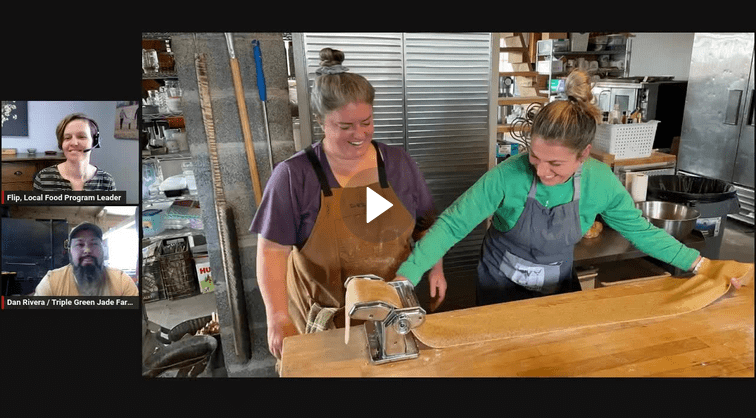Every business owner comes to their work with unique strengths. Some folks start with a solid background in planning and business, while others know kitchens and food safety well. One business owner might have building and design experience, while others are proficient at developing marketing materials and outreach. Each one of these skills and many more are required when running a food business. One aspect of my job as manager of the shared-use Harvest Kitchen at the Extension Learning Farm is offering technical assistance to food entrepreneurs. Part of the technical assistance equation is understanding a person’s strongest foundational skills and filling in with supportive information and resources where needed.
This winter, based on the most common questions I was fielding throughout the year, I designed a 3-week class called Creating or Renting a Commercial Kitchen for Your Food Business for the Ag and Food Producers Academy. In January, the group met together online in the evenings for three sessions, and we all came together for a field trip at the close of the course. 19 businesses participated and had wide ranging business ideas including dehydrated products, baked goods, prepared foods, and more.
At the close of our month together, Extension asked the class participants which aspects of the course were most valuable for them as they move forward in diversifying an existing business or starting fresh with a new idea. We had so much fun together unraveling this important and complicated topic, I wanted to share some of their comments below alongside photos of the course experience.
1. Making Connections
“I gained some new friends and I learned what others are doing locally with commercial kitchens.”

2. Learning about Recipe Approvals
“It really demystified the scheduled process for me and the whole process is much less daunting than I originally imagined.”

3. Combining Online and In-Person Learning
“Hearing the things we learned in class webinars repeated by the folks at the tour stops. Their personal stories and experiences were great.”

- Inspiration from existing food entrepreneurs
“I enjoyed hearing about examples of vastly different spaces used as commercial kitchens and the thoroughness of the descriptions and information detailing how they are different, used for different purposes, and covered by different rules and inspections.”

5. Accessing Resources
“I plan to use as many resources as possible as we navigate through this commercial kitchen food processing plan. I am going to take one step at a time and listen to all the people that can share their experiences and expertise. Good things are worth waiting for so hopefully with hard work and some patience everything will fall into place nicely.”

In summary, the course exposed the participants to an enormous amount of information regarding food permits and licensing, government regulators, commercial kitchen design and building requirements, different types of kitchens, along with preparing for inspections and operating. As they make their way along the long and winding road of food entrepreneurship, each person will be able to follow-up and dive deeper on the planning aspects that are most applicable to their business.
This programming is made possible with funding from the USDA and part of their Farmers Market Promotion funds as one aspect of an Extension initiative called, Growing Resilience. The final course in the winter Academy is Planning and Maintaining a High Tunnel or Greenhouse which is running now through March 18.
If you are planning a food business in St. Lawrence County and are looking for information or guidance, reach out anytime to mpf65@cornell.edu or 315-379-9192, ext. 229.
Flip Filippi is the Local Food Program Leader and Harvest Kitchen Manager at the Extension Learning Farm. She is dedicated to serving people all along the food chain: from businesses wanting to make food products for sale to consumers eager to access foods produced in the region and gain the confidence to use them in their kitchens. She is a certified Master Food Preserver and loves to connect with others around low waste, full flavored whole foods cooking.
